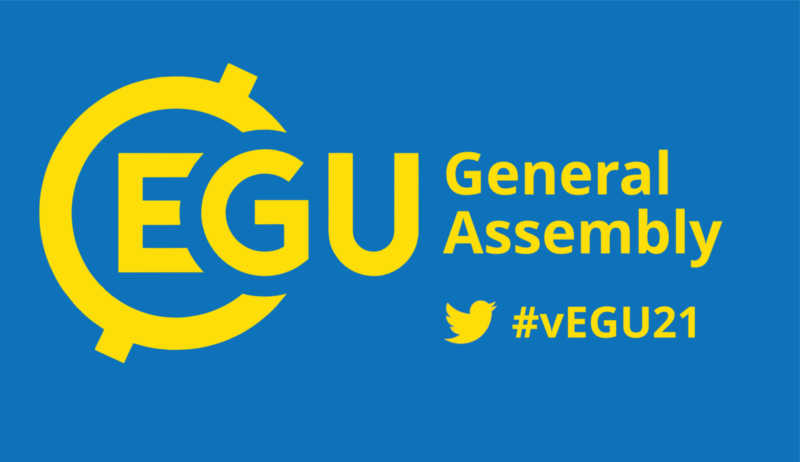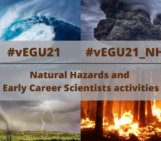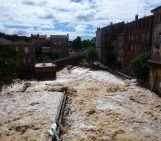
On November 2nd, EGU opened the call for abstracts and communicated that 2021 will see the General Assembly going again fully virtual. It seems a very considerate choice, giving that the COVID-19 pandemic still pervades our lives and makes impossible safe planning of events that include travelling and in-person contacts so far ahead in time. Let’s see what we have to know to get ready for it based on the latest information provided on the official website. Take this post as a little guide through summary with direct hyperlinks to the official pages where you can find full details!
The conference goes virtual again from 19 to 30 April 2021, the list of proposed sessions is here and the call for abstracts is open with the deadline set on the 13th January 2021 h13:00 CET. For guidelines and details about abstract processing charges’ click here.
Yes, yes, you read it right the 2021 General Assembly will last a full two weeks, but there is a reason that I can anticipate. Remember last year Medal lectures? No? Well, me neither! And that’s because they did not happen, due to lack of adequate time to convert the full in-person conference into a virtual one and they were, therefore, postponed to the next meeting. And now this means that we get double Medal lectures in 2021! Besides, the short courses could likely be spread over a longer period so that the offer can be richer and with a smaller number of possible overlaps.
How will the virtual conference work?
EGU really thrives for accessibility and inclusiveness and strongly promotes the equal importance of all scientific presentations: meaning that an oral, a poster and a PICO presentation are equally significant contributions in the in-person conference. In a virtual conference, the differences are evened out even more in terms of both participation and contributions. For #vEGU21: Gather Online, EGU has thought of a unique and new session format: the virtual PICO (shorten in vPICO).
How does that work? Sessions will be divided into time blocks of about 20 abstracts each. And each time block will start with 2-minute presentations (the same as the 2-minutes madness of in-person PICO sessions) by all authors who have abstracts in that time block, moderated by a chairperson. After the 2-minute presentations, each author will join their individual breakout webinar where further discussion will be possible via chat. Attendees will be able to join the discussion from the breakout webinar links available in the online programme and it will be possible to visit multiple authors during the remaining session time.
And for the presentation format? For the 2-minute presentations, authors are asked to upload a single slide (*.pdf, *.ppt/pptx) at least 24 hours before the session’s start summarizing the essence of the research described in their abstract. However, thanks to EGUsphere, it will also be possible to upload more display material than just the one slide. The display material will be linked to the abstract and can be used for further discussion. It sounds exciting! And more information and details will come in the next weeks and months, so keep an eye on the dedicated webpage, here.
By the way, are you convening a session for the first time and wondering what happens now? We got you covered! Early Career Scientists Representatives Andrea Madella (GM), Anna Gülcher (GD), and Tommaso Alberti (NPG) have put together some advice on how to convene a session on the GeoLog, click here to read.
What about Union-wide sessions?
EGU got us covered on this too, and the offer will be complete. In particular: Union Symposia and Great Debates will take place as webinars with questions from the audience asked through live written Q&A while speakers will answer orally. These events will be recorded for on-demand viewing. As anticipated above, Medal lectures will take place and they will also be in the form of webinars and will be recorded for on-demand viewing. Short courses will be mainly organized as webinars during #vEGU21: Gather Online, but some will probably be pre-recorded for on-demand viewing. Townhall meetings will take place as webinars with live written Q&A for questions while speakers will answer orally. Finally, EGU will provide the opportunity to organize public splinter meetings. These will be listed in the online programme and will be run on the same online platform as all other sessions.
Will #vEGU21: Gathering Online have a registration fee?
Yes, differently from the 2020 General Assembly, attending the 2021 online conference involves a registration fee, which in the honest –maybe non requested- opinion of your blogger here, it’s a fair fee! In addition, EGU members benefit from a reduction, and there are waivers!
The registration is free if you are receiving an EGU award or medal, if you are an undergraduate or master student, if you are a PhD candidate from a middle-income country and if you work in a low- or lower-middle-income country. Early rates end on 31 March 2021 and for the registration fee details, you can check the dedicated webpage here.
Are you an exhibitor?
Check out the information page for the virtual exhibition here, cause there is also the chance to book virtual booths and promote your activity and products during the Gather Online!
Sounds all very exciting, doesn’t it? More details are provided on the #vEGU21: Gather Online dedicated webpage that you can reach here. If you want to have an overview of deadlines and milestones until the conference starts, check them here.
Then, it’s time to submit an abstract!
I warmly invite you to submit an abstract to one of the numerous Natural Hazards Division sessions! We are a very interdisciplinary Division and I’m sure you’ll find an exciting session to contribute to. I’m delighted to note that many sessions proposed within the Natural Hazards Division have Early Career Scientists among the conveners and received the equality, diversity, and inclusion (EDI) recognition, which means that their convener list fulfils the following three criteria:
- include conveners from multiple countries and institutes;
- include conveners at different career stages, with particular attention to the participation of Early Career Scientists; and
- include conveners that represent different genders and all other forms of diversity.
Among all the proposed sessions, I would like to highlight those proposed by the Natural hazards Early Career Scientists Team and –I’m sure– your favourite bloggers!
- NH6.6 – Hazard and risk assessment of climate related impacts on Agricultural and Forested Ecosystems using Remote Sensing and modelling. Conveners: Jonathan Rizzi, Luigi Lombardo, Wenwu Zhao.
- NH9.4 – Challenges and opportunities of big data and citizen science methods and tools for natural hazards. Conveners: Raffaele Albano, Valeria Cigala, Jonathan Rizzi.
- ESSI1.6 – Spatio-temporal data science: theoretical advances and applications in computational geosciences. Conveners: Federico Amato, Daniela Castro-Camilo, Fabian Guignard, Luigi Lombardo, Marj Tonini.
- SC3.2 – Outreach: how to get your science out there? Conveners: Anita Di Chiara, Meriel J. Bittner, Valeria Cigala, Janneke de Laat.
- SC5.18 – Parametric delineation of geomorphological slope units with r.slopeunits in GRASS GIS. Conveners: Luigi Lombardo, Massimiliano Alvioli, Gabriele Amato, Ivan Marchesini.
And to conclude, do you want to get more involved within EGU and in particular the Early Career Scientist team of the Natural Hazards Division? Get in touch: ecs-nh@egu.eu!
Post edited by: Gabriele Amato and Asimina Voskaki.



